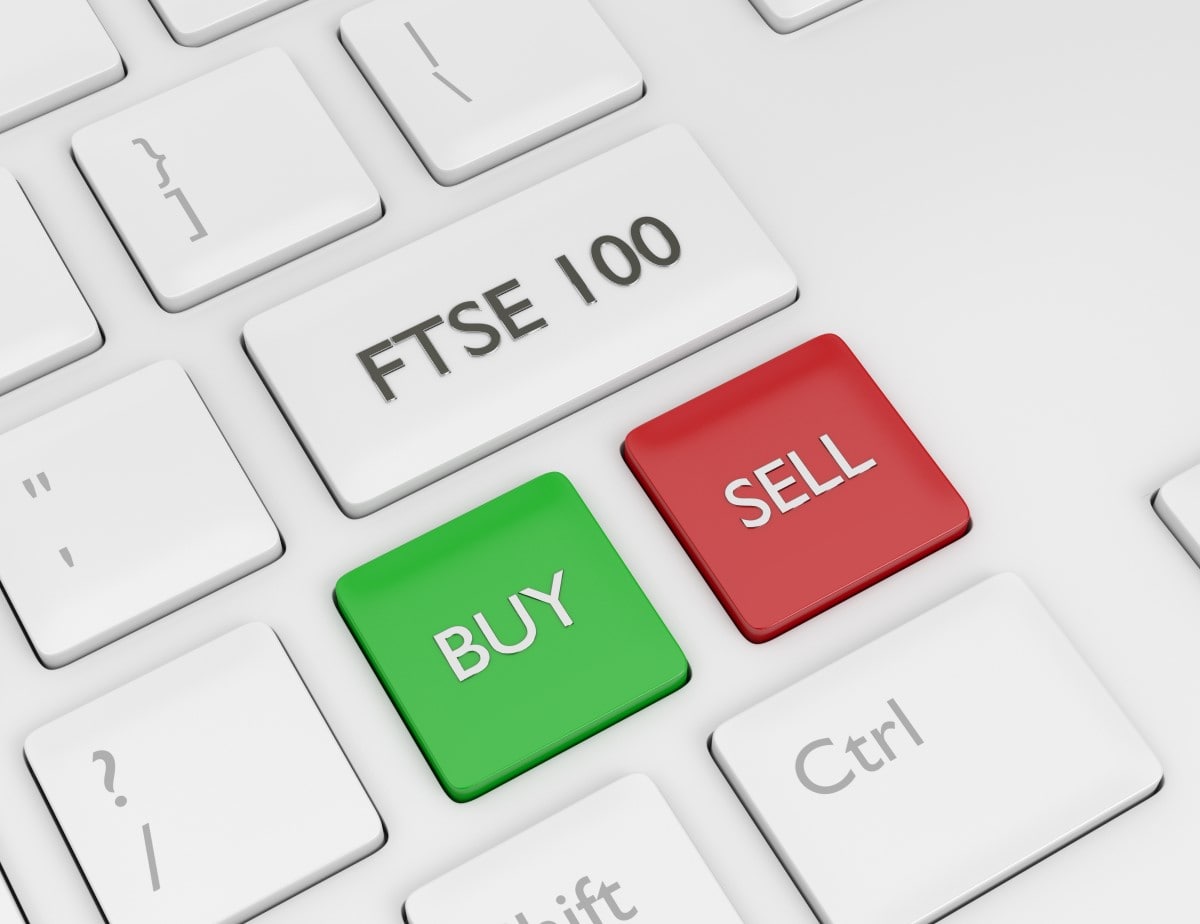

Definition of FTSE 100: Meaning, Composition and Strategies
Since it comprises a large number of individual stocks, it produces a reliable signal compared to the American Dow Jones or the German DAX.
What Does FTSE Stand For?
FTSE is short for Financial Times and Stock Exchange, which refers to their joint ownership over the company. The FTSE Group maintains financial indices to measure sections of the overall stock market. Information on how a particular market segment is performing gives traders and investors invaluable insight.
The most well-known index produced by the FTSE Group is the FTSE 100. It embodies the overall performance of the 100 major companies in the UK listed on the London Stock Exchange (LSE). It provides a snapshot of the most highly capitalised 'blue-chip' companies, which are trusted and recognised.
Understanding the FTSE 100

Every constituent of the FTSE 100 Index participates in the London Main Market. Combined, they account for about 80% of the total value of all publicly traded companies within the LSE. Currently, the top 10 companies that belong to the index include:
|
Name |
Industry |
Weight (%) |
|
HSBC |
Banks |
6.79 |
|
BP |
Oil & Gas Producers |
5.52 |
|
Royal Dutch Shell A |
Oil & Gas Producers |
5.5 |
|
AstraZeneca |
Pharmaceuticals & Biotechnology |
5.12 |
|
Royal Dutch Shell B |
Oil & Gas Producers |
4.82 |
|
GlaxoSmithKline |
Pharmaceuticals & Biotechnology |
4.59 |
|
Diageo |
Beverages |
4.18 |
|
British American Tobacco |
Tobacco |
3.69 |
|
Unilever |
Personal Goods |
2.86 |
|
Rio Tinto Group |
Mining |
2.49 |
The composition of the FTSE 100 index is revisited every quarter. The review usually takes place on Wednesdays following the first Friday in March, June, September and December. Any numbers and values used in the calculation are taken from the night before. The methodology relies on price changes of underlying constituents.
Market capitalisation is a defining factor by which companies make the cut. However, there are other conditions for being featured in the index:
- Being quoted on the LSE
- Staying compliant with the company's origin and liquidity ratio
- Remaining publicly traded stocks.
If it turns out a company doesn't meet all of the requirements, it gets taken out. The composition always includes 100 companies, so a new one is added to the list. Obviously, it must meet all the rules mentioned above.
Factors Influencing the FTSE 100 Index Price

The price of the FTSE can be affected by a variety of events around the world. The most influential factors include:
- News regarding GDP
- UK manufacturing statistics
- Events in the Middle East
- Any global news, especially somehow relating to specific industries from the list
- Economic and political shifts.
Advantages and Disadvantages of FTSE 100
Just like any financial asset and instrument, the discussion around FTSE 100 has arguments both in favour of and against it. The upsides include:
- You receive instant exposure to the top companies in the UK with established positions in their respective industries
- It allows you to diversify your portfolio
- FTSE 100 tends to be cheaper to track
- There's no stock-specific risk since you have a composition of 100.
It's also essential to mention the downsides associated with this style of trading:
- Some stocks have high levels of debt
- There's minimal technology representation in the composition
- You may be conflicted about investing in the companies that make warships, produce tobacco and alcohol.
What Is FTSE 100 CFD Trading?
If you want to trade FTSE with CFDs, there aren't drastic differences from traditional trading strategies. You can set stop loss and limits, enter short or long trades, etc. Depending on your predictions, you can speculate on the index price in either direction.
What Is CFD Trading?
The acronym CFD stands for contract for difference. It's a financial instrument that allows you to trade assets, which in our case is the FTSE 100 index. One of the main distinguishing features of CFDs is that there's no actual delivery of the instrument being traded. When a trader acquires CFDs and then sells the contract, they make a profit due to price fluctuations for this asset.
Advantages and Disadvantages of FTSE 100CFD Trading
Let's take a quick look at what makes CFD an attractive way to work with the FTSE index. Major benefits for a trader include:
- Leverage. For example, if you have a 1 to 100 leverage, you can make 100 times more money than you would without it
- Suits beginners. You only need to place a small deposit to start. Leverage helps you significantly increase your investment capital when the market is not moving in your favour
- Varying contract sizes. Until you're confident in your skills and knowledge, you can start trading with smaller amounts. It allows you to minimise the consequences of any mistakes you make
- Provides flexibility. The instrument offers you opportunities for different future values of the asset. Whether you expect an increase or decrease, you can use it to your advantage.
Keeping all the pros in mind, it's crucial to be aware of the risks involved. The biggest risk is the downside of using leverage. If the market behaves differently than you anticipated, your losses may increase. Another disadvantage is large spreads, which can also affect your losses. However, if you apply the right approach, you can manage and offset these risks.
FTSE 100 CFD Trading Strategies

When trading FTSE 100, you always need to make a thorough analysis and accurate charting. It's recommended that you use the moving average and RSI in your analysis. Be cautious when choosing a particular strategy:
- Bullish strategy. Use the indicators mentioned above and always apply a stop loss. You can use this strategy when the price has reversed or is already going down. However, the latter is riskier and more aggressive.
- Bearish strategy. You can use it for short- and long-term trading. A stop-loss would also be useful; you can also move the stop-loss if you have enough deposit.
Conclusion
The FTSE 100 gauges the overall sentiment in the UK market based on the most capitalised companies. It has great prospects, which makes it such a widely traded instrument.
If you want to try it out on CFDs without risking money, open a free demo account on Libertex. Having theoretical knowledge is essential by practising. Develop your skills in a controlled environment.
Disclaimer: The information in this article is not intended to be and does not constitute investment advice or any other form of advice or recommendation of any sort offered or endorsed by Libertex. Past performance does not guarantee future results.
Why trade with Libertex?
- Get access to a free demo account free of charge.
- Enjoy technical support from an operator 5 days a week, from 9 a.m. to 9 p.m. (Central European Standard Time).
- Use a multiplier of up to 1:30 (for retail clients).
- Operate on a platform for any device: Libertex and MetaTrader.